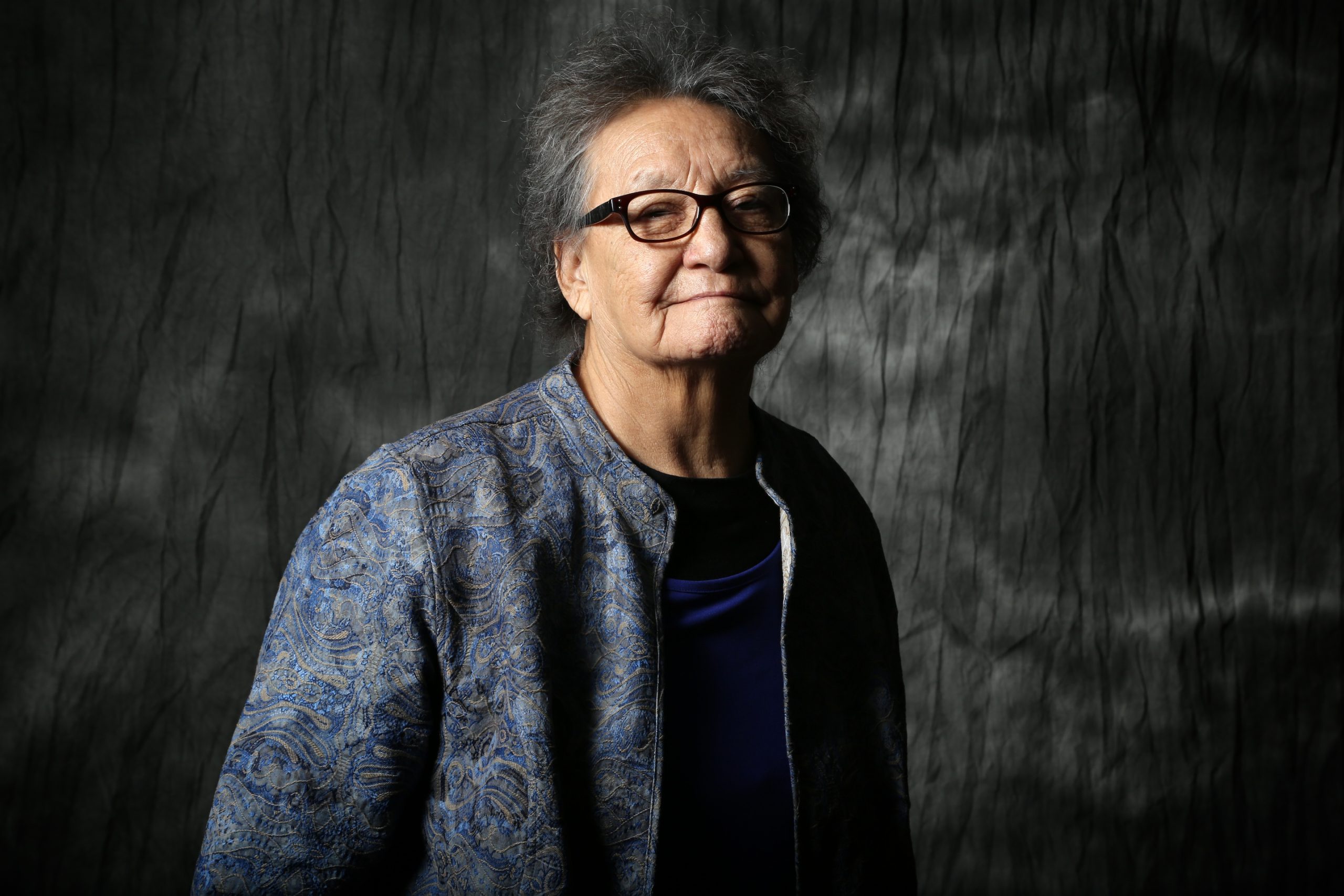Dakota Elder Doris Pratt passes away

March 7, 2019
Treaty One Territory, Manitoba
AMC Communications
Elder Doris Pratt, Duzahan Mani Win (Walks Fast Woman) was born February 10, 1936 in what was then known as the Oak River Indian Reserve now known as the Sioux Valley Dakota Nation or as known by the Dakota people “Wipazoka Wakpa”, where she still currently resides and continues to work in the education field as the Elder advisor for the Sioux Valley Schools.
Elder Pratt’s grandfather, One-Face (Ite Wanzida), was known as one of the first Dakota men who returned with his family, along with other families, to the North Country. Her parents were Bessie and Demas Dowan, whom she proudly acknowledges provided the spiritualty, language and cultural foundation that have been the guiding principles in all that she has achieved in her lifetime.
Elder Pratt is the youngest of nine children; at the age of 6 years she attended Anglican Day School on the Oak River Reserve. The following year they were moved to the Residential School in Elkhorn Manitoba, she remained there until being moved to Portage la Prairie Indian Residential School. Although her mother truly believed that Doris should receive a formal education, at the age of 16 her mother refused to send her back to Residential School. Elder Pratt returned to live in her community, where as she stated, she “received the best kind of education.” She was taught to work hard by making a living and surviving off the land, helping her father with chores, trapping, and working in the agricultural fields that surrounded their community. She was a horse-woman, known for her excellent riding skills. Elder Pratt treasures these memories, she believes the teachings she received from her parents, extended family and community molded her to becoming the strong Dakota woman she is.
In the early 1970’s, through the encouragement of the Kindergarten teacher at the Sioux Valley School, she applied to the Indian Metis Project and Careers Teacher Education (IMPACTE) Program at Brandon University. She acknowledges the many people, such as the Kindergarten Teacher, who believed in her, providing encouragement, inspiration and support to achieve great things in her lifetime. She practices this same model and has encouraged many young First Nation people to pursue their dreams, many who have become Teachers like her. She coordinated the BUNTEP Program in Winnipeg and started the same Program in her own community in the early 2000’s.
Her post-secondary education includes a Bachelor of Teaching Degree, Bachelor of Education (5-year) and Masters of Education Degree all from Brandon University. Doris also spent five summers at the American Language Institute Development Program at the University of Arizona and achieved an Education, Culture & Language Specialist Degree in December 2004. She considered her formal education challenging, and promotes the philosophy that First Nations people can achieve their goals through hard work, and that education is the key for success and the advancement of First Nations.
Doris and her late husband Walter had 6 children and have been blessed with over 20 grandchildren and 20+ great grandchildren.
Elder Pratt has been involved with AMC since its inception –
- she participated at the Manitoba First Nation Education Directors Meetings;
- then at the FAI Council of Elders Table; and
- since 2006, at the AMC and TRCM Council of Elders
Elder Pratt has received several awards recognizing her achievements including:
- Queen Elizabeth Diamond Jubilee Medal – Knowledge Keepers
- Ka Ni Kanichihk – Keeping the Fires Burning – Grandmothers Award
- Aboriginal Circle of Educators – Trailblazers Award
- Manitoba First Nations Education Centre – Dakota Language Recognition
- Women of Distinction Award – Lifetime Achievement
- Nominated for Aboriginal Achievement award in Education
Elder Pratt has dedicated her life to education and more importantly to ensuring the Dakota language was preserved and promoted in the Dakota communities she worked in as a teacher, principal, director of education, and as a professor at the university level. To this day, she continues to develop language materials and resources that will be used for future generations. The development of a phonetic writing system for the Dakota language was a major achievement that provided a system that provided for an easier way to read and write the Dakota language for children and adults.
Elder Pratt is the author of the book The Dakota Oyate that was published by TRCM in March 2016 and she is in the process now of translating this book into Dakota which will be published and released by the Treaty Relations Commission of Manitoba; as well, she continues to remain active with the Manitoba First Nations Education Resource Centre, Aboriginal Languages of Manitoba and Government of Canada for Dakota translations. In 2018 she authored her second book, Keeping Baby Close: Making of a Moss Bag that was published by the Manitoba First Nations Education Resource Centre.
Let us acknowledge Elder Doris Pratt (Duzahan Mani Win) for her contributions to the Assembly of Manitoba Chiefs and her lifetime commitment as an educator and strong advocate for the rights of all First Nations.
At the time of her passing she was nominated for the Lieutenant Governor’s Award for Historic Preservation and Promotion.